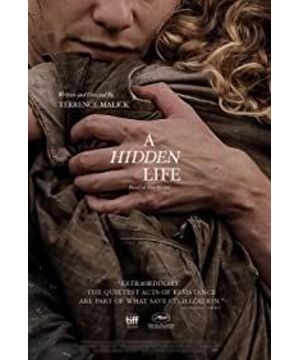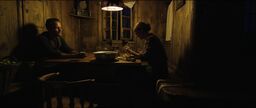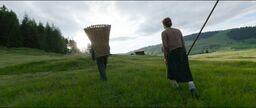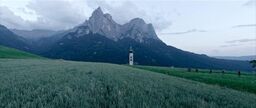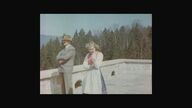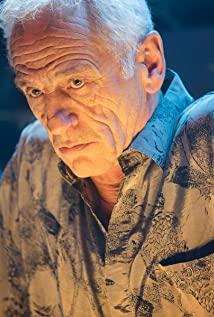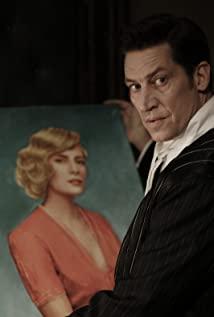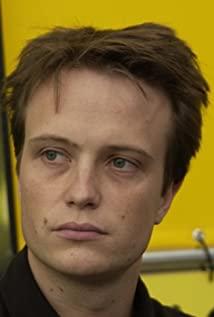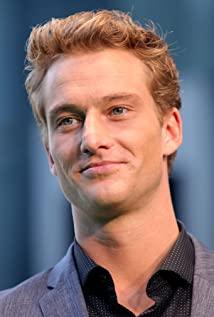Today is May 9th, the 75th anniversary of the victory over fascism. So I watched a movie "The Secret Life" related to World War II. But I still have to take the trouble to say that this is not a film review, but an afterthought, where I think and say where.
This film was released last year and the director is Terrence Malik. The background of the story is Austria in the early days of World War II. It is about a farmer, Franz Jagersted, who refused to swear allegiance to Hitler when he was enlisted in the army and was eventually executed.
To understand the movie, you must first understand the situation at the time. In 1933, Hitler came to power by popular election. He did several major things: revitalizing the German economy, reorganizing its armaments, repelling Jews, persecuting the Communist Party, and annexing Austria. In this way, the humiliation of Germany's defeat was swept away and won the support of the German and Austrian people. People responded to his call and stepped up preparations to go to Europe and the world to defend their territories. As the famous saying goes: "Even without Hitler, people have to create one." Because Hitler represented the general sentiment of the people at that time, he freed people from disappointment and amplified this sentiment, as if a poisonous fog filled the whole of Germany. People who are irrational gradually go into irrational madness.
The story of the film is very simple, there are not so many ups and downs, the dramatic conflicts are not intense, the calm narration, the light scenery, and the gentle dialogue. Many plots are based on Franz and his wife Fanny in prison. Letters to develop.
Franz lives in a small mountain village in St. Radgund, Austria. For many years, people have lived and thrived here, living a simple life of sunrise and daily living. "Our valley looks carefree, we live in a paradise." However, German military planes passing by in the air disturbed this calm. Fanny had an ominous premonition listening to the roar of the plane.
Hitler brought them into the war. Soon, Franz was conscripted for the first time. In the army, he witnessed the invasion of other countries by Nazi troops. When other villagers rejoiced in the victory of Germany and the surrender of France, he couldn't help asking himself: "What happened to our country? What happened to our beloved land?" In the propaganda film he showed in the army, he saw the city being bombed and thousands of families suffering. People on the side could not help applauding and cheering when they saw the scene in the film. And Franz fell into deeper thinking: "Do you believe in our purpose in this battle?" But as the old man guarding the mill pointed out to him: "Now people can't tell the devil when they see it." Lanz was unwilling to be involved in the war again, unwilling to act as cannon fodder for Hitler. He refused to contribute to the war and refused to call "Hi Hitler" every day. . His actions were despised by the villagers, and the mayor called him a "traitor." In the eyes of others, he has also become a complete alternative. In desperation, Franz pinned his hopes in religion, hoping that God can lead him to find a way of salvation. He said to the priest: "If they want me to join the army, I can't go. We are killing innocents, trampling on other countries, and eyeing the weak. Maybe our enemies are heroes. They fight the invaders and defend our country." He pleaded. The priest answered: "If God gives us free will, we are responsible for what we do, and we are also responsible for what we fail to do. If our leader is not good, if he is evil, what should I do? I Want to save my life, but don’t tell lies.” However, the answer he got was a painless answer: “You are obligated to the motherland. This is the way the church teaches.” So he realized that they Don't dare to come forward, or they should suffer. He also saw that even the big church bell was melted and made bullets, not to mention the collusion between the Vatican and the Nazis during the war. As a result, Franz was completely disappointed.
In disappointment, Franz said to Fanny: "I had a dream and I saw a train. The dark train is full of power. You can't see where it is going, you only see the fields and trees retreating quickly. "He felt that the train was leading people to the abyss, the whole world was sinking, and it was crazy to follow Hitler. Franz thought of hiding, escaping into the mountains, and suicide. But all of this can't calm his soul.
In the end he made a decision: refused to join the army and refused to swear allegiance to Hitler. This is also the mental journey of Franz's hard thinking.
In that era when the whole people were crazy, he needed a lot of courage and firm conviction to make this decision. He knows the price to be paid after making this decision. He will leave his wife, mother and children forever, and lose his family. His wife will be scolded by people, and his children will be abused. He himself will be arrested and endure endless torture in the bars. Eventually he will also lose his life. This is a long and endless journey. However, what he has paid for all this will be the freedom of the soul.
People are in sympathy for him, they have tried hard to persuade him and provided him with many choices. His wife Fanny said to him: "You can't change this world, this world is stronger than you." His lawyer said to him: "Is your resistance good for anyone? Do you think that will change anything? There is a difference between the unavoidable suffering and the suffering that we voluntarily choose." The priest also told him: "God doesn't care what you say, only what you think in your heart. Take an oath, you can think whatever you want. "The lawyer advised him to sign a letter of repentance and become a medical soldier. Franz asked: "Do I need to swear allegiance to Hitler?" Answer: "It's just an oath. I mean, no one takes those words seriously." Franz said, "I can't do it." The lawyer persuaded: " You only need to sign a name and you are free." Franz said: "But I am free." Maybe Franz said "freedom" that others will never understand.
Franz is not a saint, he is just a farmer. He didn't want to be a whistleblower to wake up anyone, and he never wanted to lead the people to challenge evil. He also didn't think about changing anything through his actions. He didn't even consider the slightest utilitarian consideration. He didn't plan to write a diary to show off, and he was not a gambler who took his life as a bet in order to win the world. He just wants to be worthy of his conscience. He said: "Even if my hand is tied, it is better than my will is tied. When you give up the desperate idea of survival, a new light shines in." At the last moment, Franz walked forward without hesitation. On the execution ground, although his handcuffed hands were shaking slightly when he was being executed, he still did not lower his noble head. He is an admirable extraordinary person. He is free.
After watching the movie, I have some associations.
Compared with the past, the world we live in is very tolerant and free. But when we look up at the starry sky, think about it carefully, are we really free? In fact, we are still invisibly slaves to many things. We are slaves to the fashionable environment, we are slaves to public opinion, we are slaves to money and material, and we are slaves to mobile phones. We are also slaves to many distracting thoughts and desires in our hearts. We were taught to be obedient since we were young, and we succumbed to countless temptations. Although we did not harm others, we succumbed to the demons and were bound by ourselves. "I thought we could build nests on tall trees and fly like birds." But in fact, we are always proud of the bird cage made of gold. This is our sorrow. Our true liberation is to break through the cage of self-imprisonment. Our true freedom is also the freedom of the complete liberation of the soul. This has nothing to do with the environment, only with our reason, only with our courage. When faced with evil, we can ask like Franz: "Am I right not to do this?"
Most of the shots in the film used handheld cameras and wide-angle, which gave people a distorted and uneasy feeling, in line with the style of the entire film. The music is also very good, which plays a very good role in accentuating the atmosphere. The Austrian scenery shot in the film is also very beautiful!
As far as my personal interests are concerned, I don't like such lengthy and boring videos. However, as far as the theme of the film is concerned, it can be enlightened and thought-provoking for me. give it a like!
At the end, you might as well excerpt a few poems by Franz:
You my shepherd,
You let me lie on the green grass,
On the banks of the river of life.
You, my strength,
You show me the direction.
You, our light,
Darkness is not dark for you,
Take us to your eternal light,
The real, never extinguished light.
My rating: 8.0.
View more about A Hidden Life reviews


